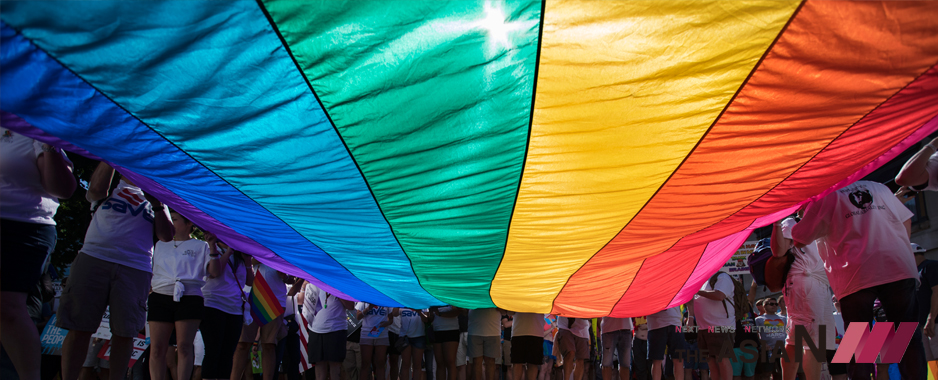
Women’s political participation in Georgia
 International Women’s Day, originally called International Working Women’s Day, is celebrated on March 8 every year. In different regions, the focus of the celebrations is usually a general celebration of respect and appreciation towards women for their economic, political and social achievements. This day will also be celebrated in Georgia where woman movements are becoming more visible: for the previous 5 years, every 8th of March was accompanied with the rallies from different independent feminist groups. The essential issues that will be presented are women’s rights, equality in Georgian society at the political level, and policies against domestic violence and against traditions that are undermining women in everyday life. The rally includes speeches and performances organized by a coalition of various feminist, LGBT, and left-wing movements. Activists marched as usual on the city center at Rustaveli Avenue, handing out their manifestos to passers-by.
International Women’s Day, originally called International Working Women’s Day, is celebrated on March 8 every year. In different regions, the focus of the celebrations is usually a general celebration of respect and appreciation towards women for their economic, political and social achievements. This day will also be celebrated in Georgia where woman movements are becoming more visible: for the previous 5 years, every 8th of March was accompanied with the rallies from different independent feminist groups. The essential issues that will be presented are women’s rights, equality in Georgian society at the political level, and policies against domestic violence and against traditions that are undermining women in everyday life. The rally includes speeches and performances organized by a coalition of various feminist, LGBT, and left-wing movements. Activists marched as usual on the city center at Rustaveli Avenue, handing out their manifestos to passers-by.
I want to stress that one of the most discussed topics in Georgia is female political participation. Georgia, like other ex-soviet Republics, gained independence in 1991 after the USSR collapse. It is also worth mentioning that during the 70 years of Soviet Era in Georgia, there were no female ministers or women in high political positions in the Georgian Republic. And until now, developments in this sphere seemed slow.
Experts in Georgia mention four main points as to why women still do not have a much political say in Georgia. These points are: (1) stereotypes of the woman only as a wife and mother, (2) women frequently do not have the financial support to win political races (3) lack of education (4) lack of time. All these factors play a negative role in bringing more women to Georgia’s political scene.
In general, the image of a female minister has not become common. For instance, in the period from 1990 to 2000, there were relatively few women in the upper echelons of power. In the period from 1998 to 2000, Tamar Beruchashvili was the Minister of Trade and Foreign Economic Relations, and Nino Chkhobadze held the post of the Minister of Environment Protection and Natural Resources from 1995 to 2004. One of the most prominent female politicians in the 2000s in Georgia, Nino Burjanadze became the first Chairwoman of the Parliament of Georgia holding this post from 2001 to 2008. At the same time, from 2003 to 2004 and 2007 to 2008, she was the acting President of Georgia. In 2000 till now, there were several other female ministers in Georgia – Cecily Gogiberidze, Vera Kobalia, Khatuna Gogoladze, Eka Tkheshelashvili, Khatuna Kalmakhelidze and Tamar Sanikidze. To add, a historical moment in Georgian history was when Tinatin Khidasheli became the first female Minister of Defense in May 2015.
What is the current picture?
As of last parliament elections in Georgia (in October 2016) out of 150 Parliament members, women take up only 24 seats (16 percent). According to the data in the table below (compiled by the Inter-Parliamentary Union on the basis of information provided by National Parliaments by 1st December 2016) among 193 countries that are classified by descending order of the percentage of women in the lower or single House, Georgia ranks 120th (http://www.ipu.org/wmn-e/classif.htm).
Only two of 19 state ministers are women: Minister of Justice Thea Tsulukiani and State Minister for Reconciliation and Civil Equality Ketevan Tsikhelashvili. There is no single woman among the nine incumbent governors across the country.
Does Georgia need Quota System?
There were two relevant legislative initiatives in Georgia last year. The first initiative proposes proportionality in party lists, which assumes equal proportions – 50 percent to 50 percent women and men. This draft law was initiated by the NGO coalition “Task Force on Women’s Political Participation” which was carrying out a campaign to change the existing system of gender inequality. However, this initiative did not move beyond public debates.
The second initiative envisions allocating 30 percent of the slots to women in party lists. Masterminds of the draft law were Nana Keinishvili (at that time member of the party “Georgian Dream”) and Tamaz Chkuaseli member of the “Georgian Dream” party. On May 25, 2016, the initiative was discussed at the first reading of the plenary session of the Parliament. However, there have been no further steps to continue the policy.
Elena Rusetskaya, director of the Women’s Information Center in Tbilisi noted: “It is interesting to note that this index of women political participation is low. In comparison to 1918-1920, when there were only 5 women in the Parliament, which was about 3 percent, today, after almost one hundred years, we have only 16 percent. So in my opinion, if a quota system will not be introduced, it will take Georgia about 50 years to get to a 30 percent threshold of women’s participation in political structures, which is very long time.”



